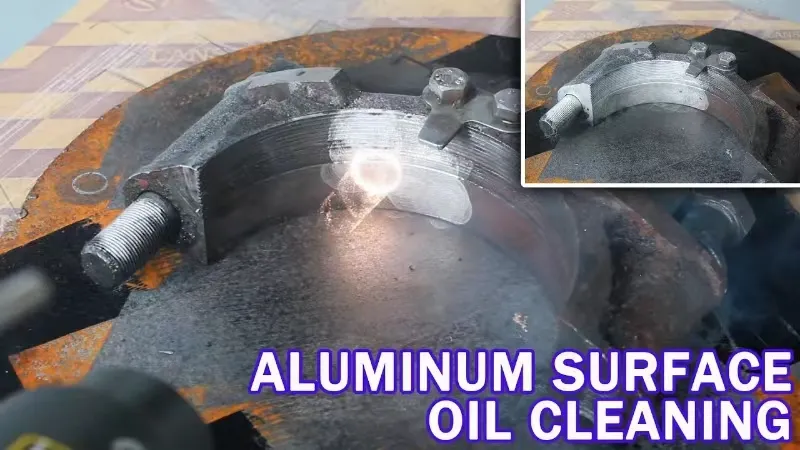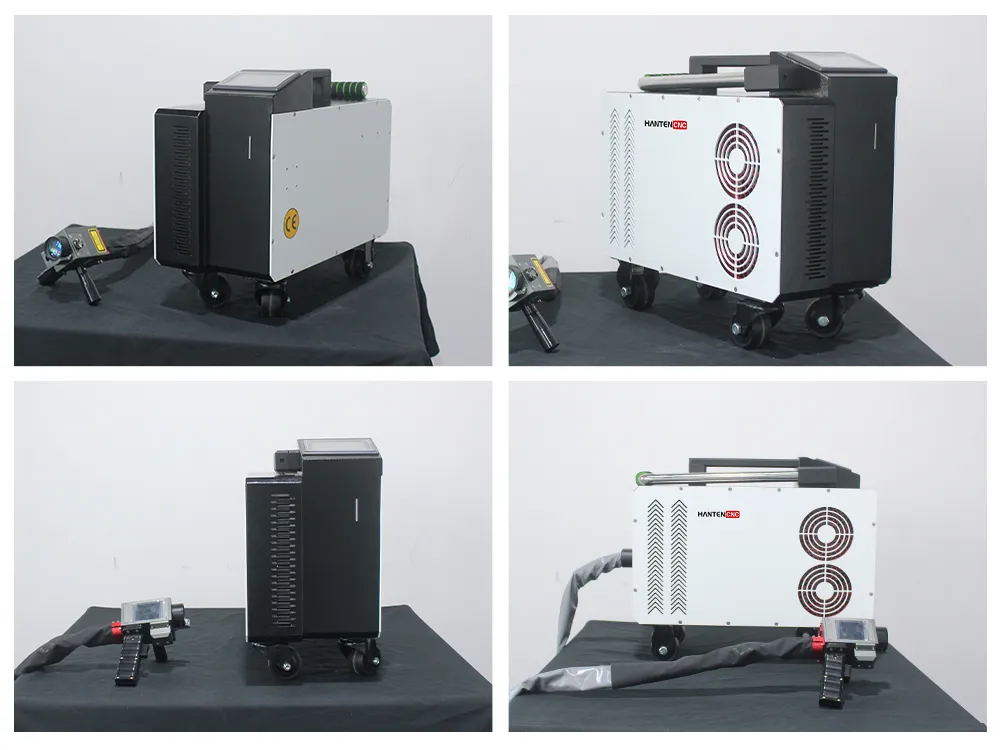Laser cleaning technology ensures that most dirt evaporates, and the remaining residues become loose and fall off. Laser cleaning machines not only clean more thoroughly than traditional methods, but the heat from the laser beam also has antibacterial properties that effectively remove bacteria and microorganisms from the substrate’s surface. Additionally, laser cleaning machines reduce harm to the environment and human health, making them an indispensable innovative technology in the development of the food industry.
Welcome to the HantenCNC Blog. Today, we’ll be exploring some basic knowledge about laser cleaning machines. In addition to that, we’ll discuss the applications of laser cleaning machines in the food industry. We hope this article will help you choose the right laser cleaning machine for your needs.
What is laser cleaning technology?
Laser cleaning technology utilizes high-intensity laser beams to ablate oil stains, rust, oxides, and other residues from metal and other material surfaces.
Thermal Decomposition: When the laser beam hits the target material’s surface, the temperature rises rapidly due to the beam’s energy, accelerating the heating and evaporation of contaminants. This process is similar to using high temperatures to decompose dirt, making it especially suitable for removing stubborn grease and coatings.
Photolysis: High-energy laser photons interact with contaminant molecules, breaking molecular bonds. This photolysis can effectively remove complex chemical pollutants, such as paint and oxide layers.
What are the benefits of laser deep cleaning?
1.Extend Equipment Life
One of the main advantages of laser cleaning machines is the contactless cleaning process. Contactless means that when dealing with grease and other contaminants, no mechanical tools are required for removal, nor are chemical cleaning agents or abrasive grinding needed, as the cleaning medium is a high-energy laser beam. The laser beam acts only on the surface contaminants, without applying friction or pressure to the substrate. Therefore, using a laser cleaning machine will not cause any wear and tear on your production equipment.
2. Achieve Precision Cleaning
Laser beams in laser cleaning machines can be focused into extremely small spots, with diameters as tiny as a few micrometers. This concentrated energy allows laser cleaning machines to operate in very small areas, such as grooves and narrow spaces that are difficult to clean. Additionally, laser cleaning machines can adjust the laser’s pulse width and frequency according to your cleaning needs. For example, a short pulse width is suitable for removing thin-layer contaminants, while high frequency can be used for large-scale cleaning. Finally, laser power can be precisely adjusted based on the complexity of the cleaning task. Lower power is suitable for removing light dirt, while higher power can be used to remove stubborn oxide layers or rust.
3. More Hygienic and Safe
In the food industry, maintaining the cleanliness of workbenches and equipment is crucial for food safety control. Typically, the temperature generated by lasers can reach hundreds or even thousands of degrees Celsius, sufficient to denature bacterial proteins and damage DNA, leading to cell death and effectively cleaning biofilms. Therefore, using laser cleaning machines not only avoids chemical cleaner residues but also eliminates microorganisms and bacteria, ensuring hygiene and safety in food production, greatly reducing food safety risks.
Simultaneously, laser cleaning machines effectively prevent workers from contacting corrosive chemical solvents or inhaling fine particles generated during abrasive grinding, ensuring worker health and safety.
4. Save Time and Labor
When cleaning a range of equipment such as mixers, ovens, and other devices, laser cleaning machines do not require pre-treatment, cleaning, and drying with chemical cleaners, saving cleaning time. Furthermore, when equipment is large or numerous, it significantly reduces worker labor intensity.
5. Environmentally Friendly
Laser cleaning machines avoid using chemical cleaning agents, reducing wastewater discharge, protecting the environment, and promoting worker health. Additionally, if chemical cleaning agents are not rinsed thoroughly, solvent residues can easily contaminate food, affecting food safety.
Applications of Laser Cleaning Machines in the Food Industry
In various sectors of the food industry, oil, carbides, gels, oxides, rust, and other contaminants accumulate during daily production. Laser cleaning machines can efficiently and thoroughly clean the equipment and tools used in food processing, ensuring a non-contact cleaning process without chemical solvents, with no pollution to the food production environment.
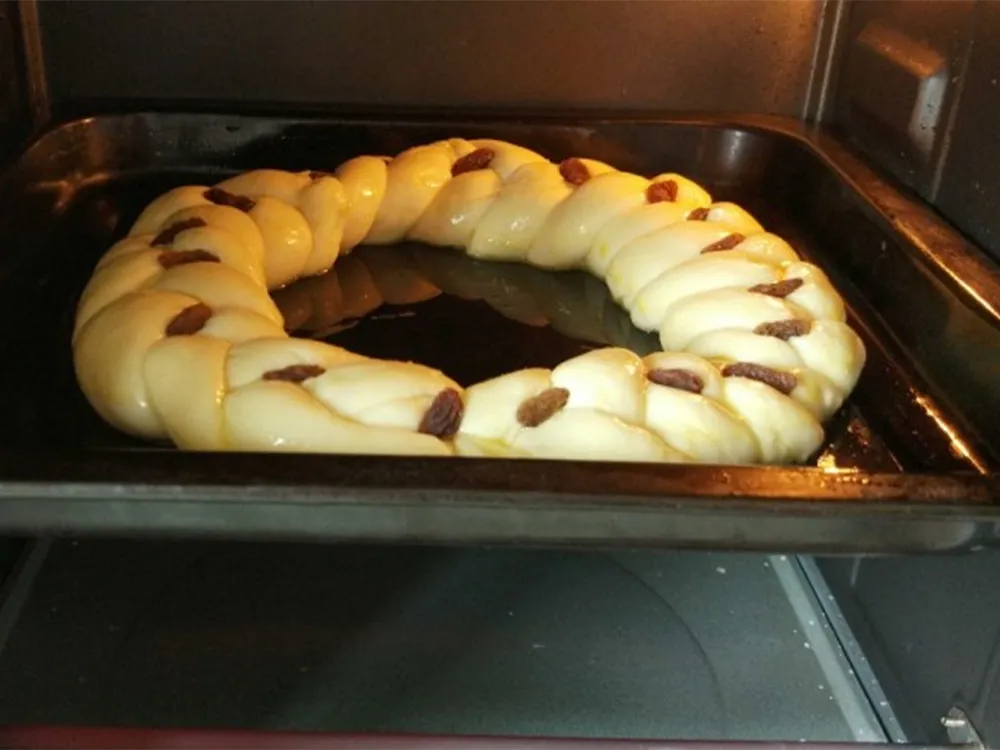
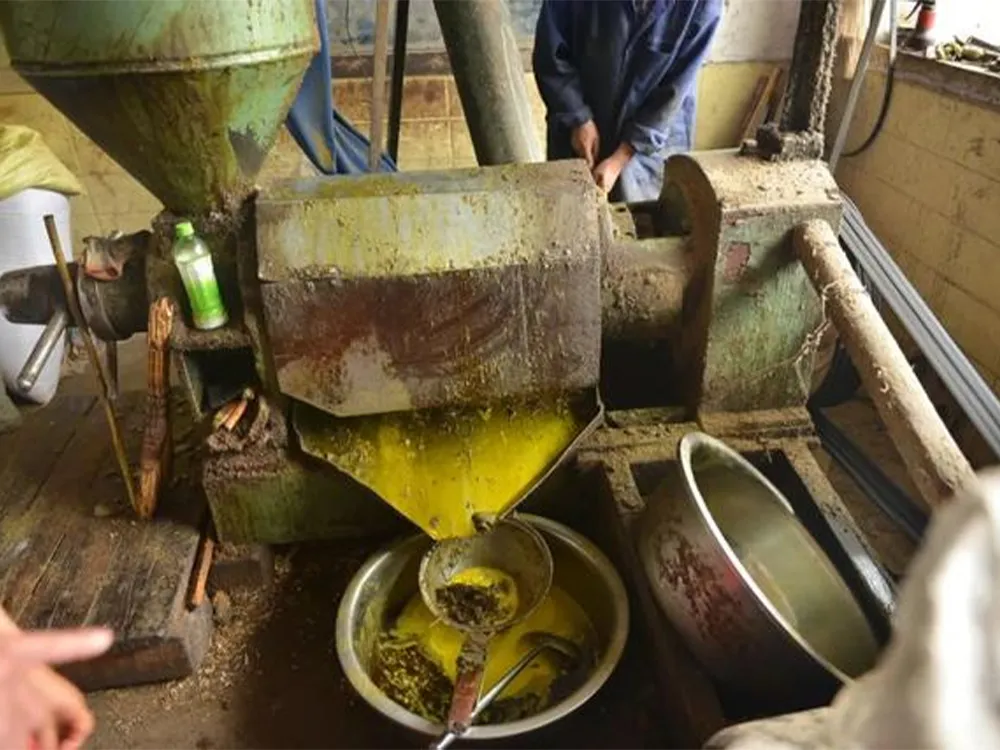
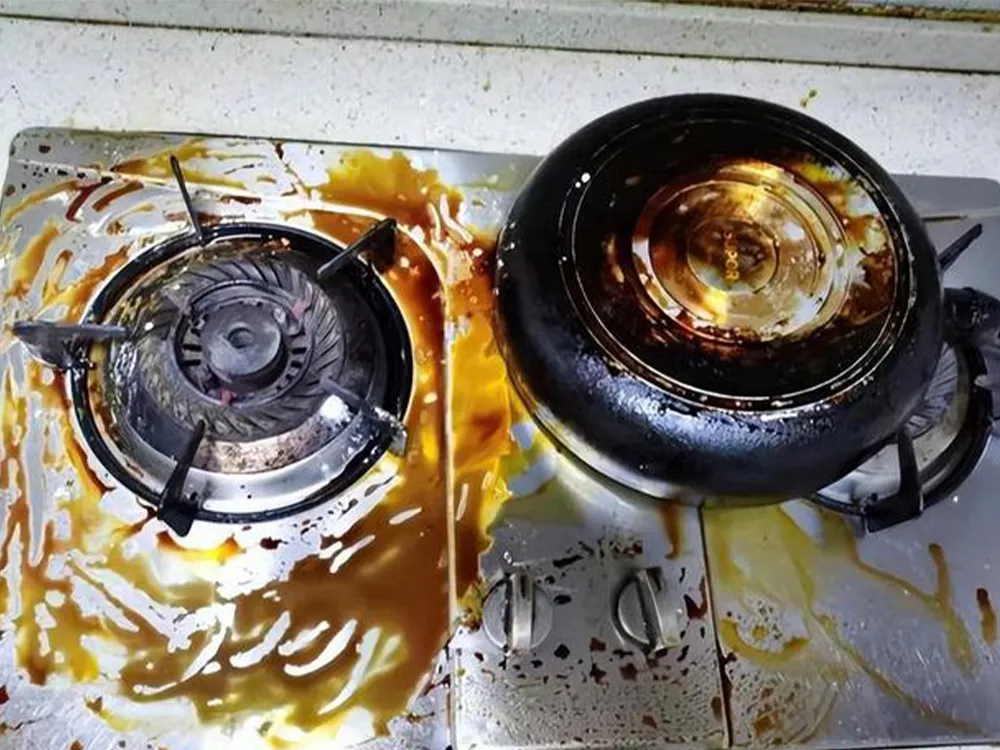
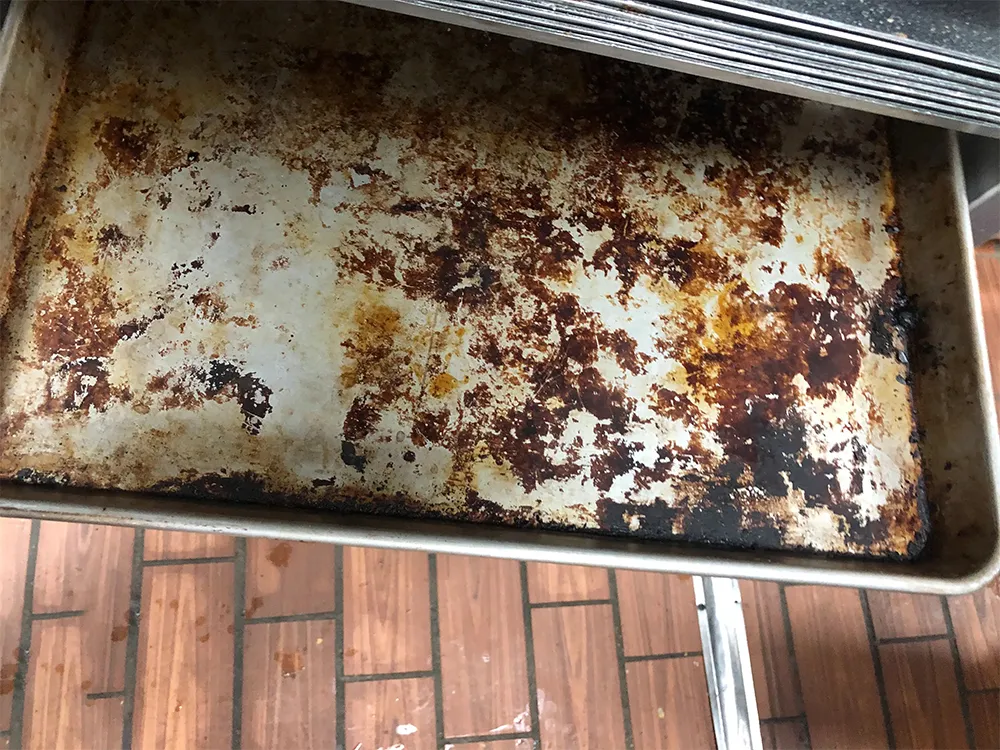
1. Removing Oil
Laser cleaning machines effectively remove grease and oil stains from food processing equipment. In the food industry, most sectors produce oil stains during production. The regular cleaning and thoroughness of oil removal relate to food taste and safety and can impact equipment operation and safety hazards.
What can our laser cleaning machines clean?
- Frying Equipment: Used in the fried food industry and catering industry, such as fryers, ventilation pipes, walls, and floors.
- Dairy Equipment: Mixers, filling equipment, and conveyors needed in the dairy industry for producing cream and cheese.
- Baking Equipment: Ovens, baking trays, pans, molds, etc., commonly used in the baking industry.
Recommended laser freshener for use:SEAGULL2 Laser Rust Cleaning Machines
SEAGULL2 Laser Rust Cleaning Machines With 200W And 300W Options
The SEAGULL2 Laser Rust Removal Machine uses the highly reliable JPT laser source. These laser cleaning machines are suitable for removing rust, grease, carbides, and gels produced during food processing and production, even in hard-to-reach areas.
With its suitcase-like design, 30° tilt screen, rotating handle, caster wheels, wrist control screen, and lightweight 0.8KG cleaning head, the machine is particularly well-suited for use in food processing plants. It is flexible and practical, making it ideal for various mobile cleaning tasks.
2. Removing Carbides
During high-temperature cooking and baking, organic substances in food can easily decompose into black or dark brown residues. These residues adhere to equipment surfaces, and if not cleaned thoroughly over time, they can affect machine efficiency and lifespan, and compromise food safety and hygiene.
.
Where do common carbides appear?
- Baking Industry: Residues of flour, sugar, butter, etc., may carbonize, leaving black carbides on oven walls, trays, and molds.
- Fast Food Industry: Frequent frying and high-temperature cooking can leave carbides on stoves, grills, ovens, and exhaust ducts.
3. Removing Gel
In food production and processing, if raw materials involve sugars, proteins, lipids, thickeners, or other sticky substances, it is very easy for many sticky residues to accumulate on the surfaces of production equipment or the inner walls of filling machinery. For example, in the beverage and dairy processing industry, filling equipment that is used continuously can develop a heavy layer of gel inside the pipelines.
Laser cleaning machines can thoroughly remove these gel deposits, ensuring safe food production and smooth operation of the entire production line.
4. Removing Oxides and Rust
In the food industry, almost all sectors involve the use of liquids and metal equipment during production and processing. This makes it easy for oxides and rust to form. These oxides and rust not only affect the normal operation and lifespan of equipment but can also compromise the quality and safety of food products.
For instance, factories that produce alcoholic beverages often use large metal fermentation tanks and storage containers. Due to frequent contact with large volumes of liquid and high humidity during production, the metal surfaces are prone to oxidation, leading to rust formation.
Laser cleaning technology effectively addresses these issues, enhancing the efficiency of production lines and ensuring the quality and safety of products.
Conclusion
Laser cleaning equipment, as an advanced cleaning technology, adheres to the concept of “machines making work easier,” reducing labor intensity and safety risks in the food industry. If you are seeking a cleaning solution that meets thoroughness, precision, and efficiency while ensuring environmental responsibility and personnel safety during operation, laser cleaning machines are your ideal choice!
Contact Us:
Whatsapp: +8613256727251
Email: [email protected]
Company Address: 402B, Building 16, Xingfu Liancheng Photoelectric Innovation Park, No. 1287, Kejia Road, Gaoxin Zone, Jinan City, Shandong Province, China

